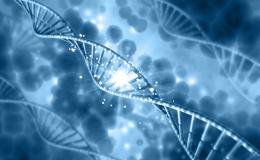What Should I Do if I Have a Relative with Blood Cancer?
September 24, 2020
A cancer diagnosis has an enormous impact on a patient’s family, and in some cases, a diagnosis can even impact the cancer risk of a patient’s relatives. Blood, or hematologic, cancers are no exception.

A recent study in the journal Blood found that first-degree relatives of patients diagnosed with blood cancer have a higher risk of developing the same blood cancer, presumably due to an adverse mutation (or change) in one or more genes.1 And despite the fact that biomedical research hasn’t discovered every mutation associated with an increased hereditary (can be passed from an affected parent to their child) cancer risk, there are steps family members can take to mitigate and better understand their own cancer risk after a relative’s diagnosis.
Any individual that is concerned about their hereditary blood cancer risk can and should discuss their concerns with their doctor. A physician can ask questions about family history of disease and refer individuals to genetic counseling for a more thorough risk assessment. Genetic counselors typically collect detailed family histories and medical records to confirm specific diagnoses and determine the likely mode, if any, of disease inheritance. Counselors can also determine whether or not other family members may be at a higher risk of developing blood cancer and how relatives might be tested.
Regardless of whether or not an individual has a family history of blood cancer, screening tests can help detect disease before symptoms develop, and potentially at an earlier and more treatable stage. Blood cancer screening tests can include a complete blood count (CBC), where the amount of red and white blood cells and platelets in the blood are determined, and a blood chemistry test to determine the levels of particular chemicals and proteins in the blood to help physicians better understand an individual’s overall health. Both of these tests are routine clinical laboratory tests that are performed with a blood sample, and are a simple and effective way to screen for disease. Additionally, individuals concerned about their hereditary cancer risk can watch for persistent signs and symptoms associated with blood cancer, including frequent infections, weakness and fatigue, easy bruising and bleeding, and unexplained weight loss.
When a family history of blood cancer is clearly present in a family, genetic testing may be available for relatives of an affected patient. Leukemia patients, for example, are typically only tested for hereditary leukemia syndromes when a clear family history of disease has been established, as genetic testing in affected individuals requires a skin punch biopsy to collect enough cells unaffected by the genetic changes of the leukemia itself.2 Thankfully, the genetic testing of relatives without leukemia is much less invasive and requires only a saliva or blood sample to determine whether or not an individual possesses a gene mutation associated with a syndrome that increases their likelihood of developing leukemia.
The field of cancer genetics has never been as well-equipped to discover new hereditary cancer genes as it is today. To date, adverse mutations in over a dozen genes have been associated with hereditary leukemia syndromes,2 and the list continues to grow. Additionally, scientists are better understanding genetic changes that can increase the likelihood of developing some types of lymphoma.3 As gene mutations associated with blood cancer are better understood, hereditary cancer tests will include these genes in their genetic screening panels to identify mutations that may increase an individual’s likelihood of developing certain cancers. The ExpedioTM Hereditary Cancer Screening presently screens for adverse mutations associated with Li-Fraumeni syndrome, which is associated with a higher risk of developing leukemia. Click here to learn more about ExpedioTM or contact us with questions regarding hereditary blood cancer or any of our genetic screenings.




